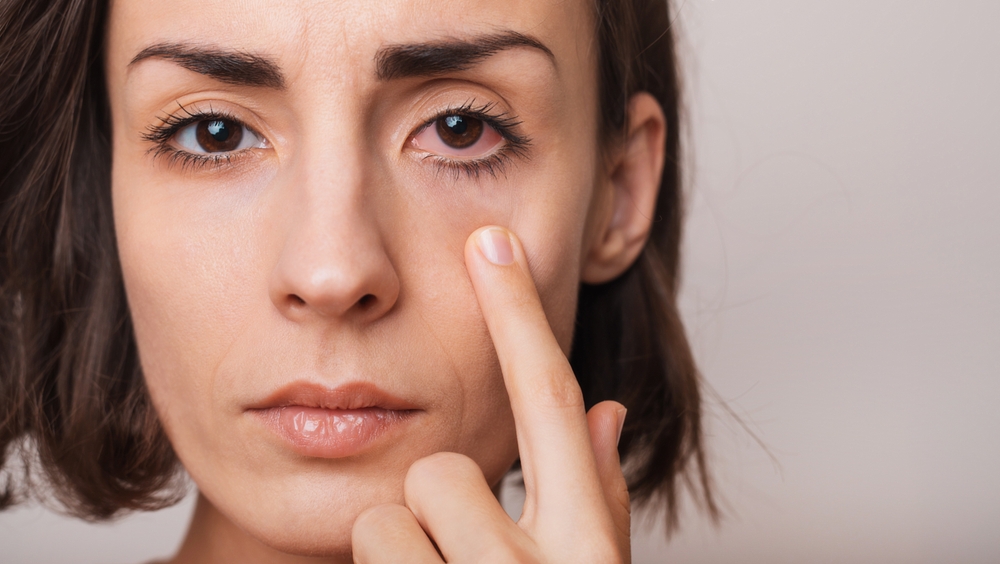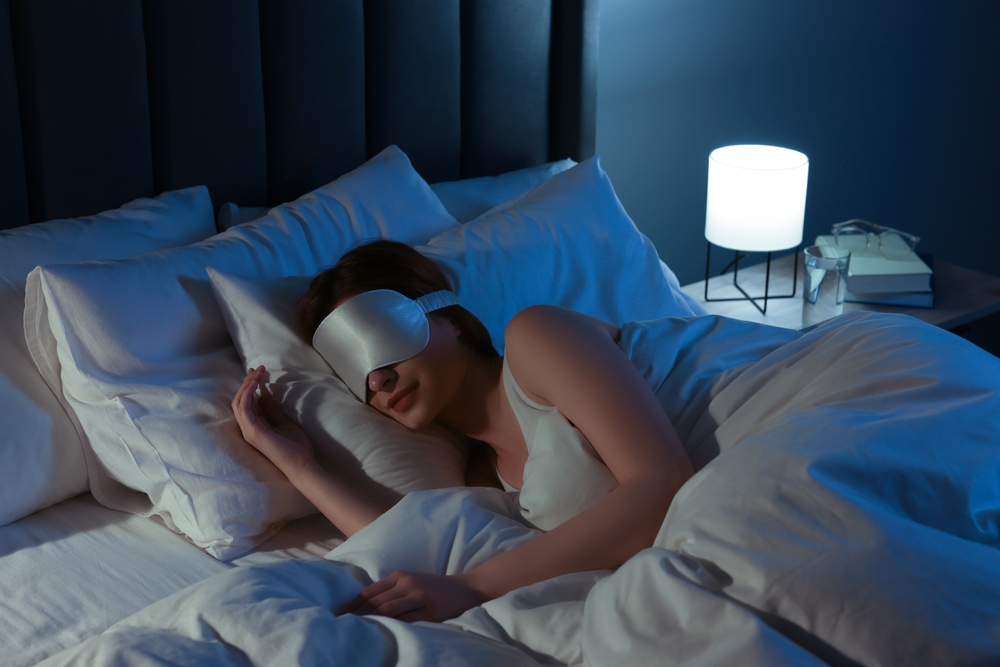Optimal eye health is essential for keeping your eyes healthy and maintaining good vision and overall well-being throughout life. While many vision problems are age-related or genetic, numerous factors within our control can significantly impact eye health. This article presents ten evidence-based, practical tips to help preserve your vision and reduce the risk of common eye issues. By incorporating these strategies into your daily routine, you can take proactive steps toward long-term eye health. Let’s explore these recommendations, starting with the often-overlooked connection between hydration and ocular function.

Hydration and Eye Health: One of the Simplest Tips for Healthy Eyes
Staying hydrated is essential for maintaining optimal eye function and preventing dry eyes. Dehydration can lead to reduced tear production, causing discomfort and potential vision issues. Drinking enough water helps keep the eyes moist and supports overall eye health.
The recommended daily water intake varies, but a general guideline is to drink at least eight 8-ounce glasses of water per day. Signs of dehydration include dry mouth, fatigue, and infrequent urination. Ensuring adequate hydration can alleviate these symptoms and promote better eye health.
Eye Exams and Healthy Eyes: Why Regular Checkups Matter
Regular eye exams are crucial for detecting and managing eye conditions early. Annual check-ups can identify issues like glaucoma and macular degeneration before they progress. Early detection allows for timely treatment, reducing the risk of severe vision loss and keeping your eyes healthy.
During an eye exam, ophthalmologists can also spot other health problems, such as diabetes and hypertension, which often manifest in the eyes first. Comprehensive exams include tests for visual acuity, eye pressure, and retinal health. Prioritizing regular eye exams ensures you maintain optimal eye health and catch potential issues early.
UV Protection Tips for Eye Health: Shield Your Eyes from the Sun
UV exposure poses significant risks to eye health, including cataracts and macular degeneration. Prolonged exposure to ultraviolet rays can damage the cornea and lens, leading to long-term vision problems. Wearing sunglasses with 100% UV protection is essential to shield your eyes from harmful rays.
Quality sunglasses block both UVA and UVB rays, providing comprehensive protection. Consistent use of UV-protective eyewear can prevent cataracts and other UV-related eye issues. Additionally, wearing a wide-brimmed hat can offer extra protection by reducing the amount of UV exposure to your eyes. Prioritize UV protection to maintain healthy vision.
Limiting Screen Time: A Key Habit for Healthy Eyes and Less Strain
Excessive screen time can lead to digital eye strain, causing discomfort and vision problems. To mitigate this, follow the 20-20-20 rule: every 20 minutes, look at something 20 feet away for 20 seconds. This simple practice helps relax your eye muscles and reduce strain.
In addition, adjust your screen’s brightness and contrast to comfortable levels. Position your screen about an arm’s length away and slightly below eye level. Taking regular breaks and blinking frequently can also help maintain eye moisture and reduce fatigue. Implementing these strategies can significantly improve your eye comfort and aid in keeping your eyes healthy.
Exercise and Eye Health: Physical Activity to Support Vision
Regular physical activity significantly benefits eye health by improving blood circulation. Enhanced circulation ensures that the eyes receive adequate oxygen and nutrients, which can help prevent conditions like glaucoma and age-related macular degeneration. Exercise also helps maintain healthy blood pressure, reducing the risk of hypertension-related eye issues.
Effective exercises include aerobic activities such as walking, jogging, and swimming. These activities promote cardiovascular health, which directly impacts eye health. Additionally, incorporating strength training and flexibility exercises can provide comprehensive health benefits. Prioritizing regular exercise supports overall well-being and contributes to maintaining healthy vision.
Manage Chronic Conditions to Protect Eye Health Long-Term
Managing chronic conditions like diabetes and hypertension is vital for keeping your eyes healthy. Uncontrolled diabetes can lead to diabetic retinopathy, a condition that damages the blood vessels in the retina. Similarly, hypertension can cause hypertensive retinopathy, leading to vision loss.
Regular monitoring and medication adherence are crucial for controlling these conditions. Maintaining a healthy diet and engaging in regular physical activity can also help manage blood sugar and blood pressure levels. By effectively managing chronic conditions, you can prevent complications that negatively impact your vision and overall eye health.
Sleep and Eye Health: Restful Nights for Healthy Eyes
Sufficient sleep is essential for preventing eye strain and dry eyes. Lack of sleep can lead to eye fatigue, twitching, and discomfort. Keeping your eyes healthy means ensuring you get enough rest, which allows your eyes to recover and maintain optimal function.
The recommended sleep duration for adults is 7-9 hours per night. To improve sleep quality, establish a consistent sleep schedule, create a relaxing bedtime routine, and limit screen time before bed. A dark, quiet, and cool environment can also promote better sleep. Prioritizing good sleep habits supports overall eye health and reduces the risk of vision problems.

Use Proper Lighting: A Practical Tip for Maintaining Healthy Eyes
Adequate lighting is crucial for preventing eye strain during reading or working. Poor lighting can cause your eyes to work harder, leading to discomfort and fatigue. Ensuring proper lighting conditions can help maintain eye health and improve productivity.
For reading, use a focused light source like a desk lamp that illuminates the page without causing glare. When working on a computer, position your screen to avoid reflections and use ambient lighting to reduce contrast. Adjusting the brightness of your screen to match the surrounding light can also minimize strain. Implementing these lighting guidelines can significantly enhance your visual comfort and efficiency.
Take Action: Simple Lifestyle Tips for Healthy Eyes You Can Start Today
When it comes to keeping your eyes healthy, there are a number of ways you can get started. Incorporate a diet rich in vitamins, stay hydrated, and schedule regular eye exams. Protect your eyes from UV rays and limit screen time to reduce eye strain. Exercise regularly, manage chronic conditions, and ensure you get sufficient sleep. Use proper lighting when reading or working. Implement these lifestyle changes to support your vision. For more information and professional eye care services, visit The Cataract Surgeons.



